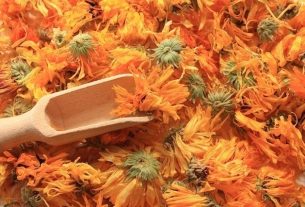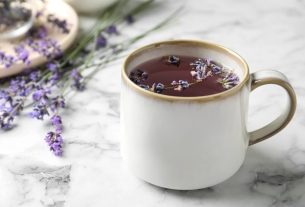Some home remedies such as ginger and garlic tea or green tea can help improve asthma symptoms, such as coughing, feeling of pressure in the chest, wheezing when breathing or feeling unwell, as they are rich in anti-inflammatory substances. , anti-allergenic and immunostimulants that reduce inflammation of the bronchi and improve air flow to the lungs.
Asthma is a chronic inflammation of the lungs in which the person has difficulty breathing, shortness of breath or a feeling of tightness in the chest, being more common in people who have a family history of asthma or who have many allergies. Know how to identify the symptoms of asthma.
Although they cannot replace medical treatment, home remedies are a good option to help prevent or control asthma attacks and can be used to complement the treatment recommended by your doctor.

Top home remedies for asthma
Some home remedies for asthma are:
1. Green tea
Some studies show that green tea, made from the plant Camellia sinensishas caffeine in its composition, a substance that helps relax the muscles of the bronchi, reducing asthma attacks, improving breathing.
Furthermore, the phenolic compounds present in green tea, such as epigallocatechin, which has antioxidant properties, help reduce oxidative stress caused by free radicals in cells and inflammation of the airways, helping to alleviate asthma symptoms.
Green tea can be used in the form of teas, infusions or natural extract, and should be used with medical advice as excessive use can harm the liver.
Ingredients
- 1 teaspoon of green tea leaves or 1 green tea bag;
- 1 cup of boiling water.
Preparation mode
Add the leaves or green tea bag to the cup of boiling water and let it steep for 10 minutes. Strain or remove the sachet and drink immediately. This tea can be consumed 3 to 4 times a day, or as advised by your doctor.
Green tea should not be consumed by children, pregnant or breastfeeding women, people who have insomnia, hyperthyroidism, gastritis or high blood pressure. Furthermore, as it contains caffeine in its composition, you should avoid drinking this tea at the end of the day or in quantities greater than recommended.
2. Ginger and garlic tea
Ginger and garlic tea has antioxidant and anti-inflammatory properties due to allicin, present in garlic, and phenolic compounds, such as gingerol, chogaol and zingerone, present in ginger. These substances help combat asthma symptoms such as coughing, wheezing, feeling of pressure in the chest and general malaise.
Ingredients
- 3 cloves of garlic, peeled and cut in half;
- 1 cm of ginger root or ½ teaspoon of powdered ginger;
- 3 cups of water;
- Honey to sweeten (optional).
Preparation mode
Boil water with garlic. Remove from heat and add ginger and honey. Strain and serve afterwards.
Ginger should not be consumed by people using anticoagulants, and therefore should be removed from the tea in these cases.
Furthermore, it is not recommended to use these oils in cases of acute asthma attacks. In these cases, medical attention should be sought as soon as possible.
3. Thyme infusion
Thyme infusion is rich in anti-inflammatory, antioxidant and expectorant substances, such as thymol, carvacrol, cymene and linalool, which allow the elimination of phlegm and relieve coughing and the feeling of heaviness in the chest caused by allergic rhinitis.
Ingredients
- 1 tablespoon of dried thyme extract or 2 sprigs of fresh thyme;
- 1 liter of boiling water.
Preparation mode
Add the dried thyme to the boiling water and let it rest for 5 to 10 minutes. Strain and drink up to 3 cups per day.
Thyme infusion should not be used by people with stomach problems such as gastritis or ulcers, by people with liver disease or who use anticoagulant medications such as warfarin or clopidogrel, for example.
4. Sweet broom tea
Sweet broom tea, prepared with the medicinal plant of the species Scoparia dulcisis a great natural remedy for asthma, as it has tannins, alkaloids, steroids and phenolic compounds in its composition, with anti-inflammatory and anti-allergic action, helping to relieve coughs.
Ingredients
- 5 g of sweet broom;
- 250 mL of water.
Preparation mode
Add the sweet broom to the water and let it boil for 10 minutes. Then, let it cool, strain and drink up to 3 cups a day.
This tea should not be taken by pregnant or breastfeeding women or by people who have high blood pressure or diabetes, or who use proton pump inhibitor medications, such as omeprazole or lansoprazole, for example.
5. Horseradish syrup
Horseradish syrup, made with the root of the medicinal plant of the species Rustic armoris rich in isothiocyanates, which are substances with anti-inflammatory action, which help reduce inflammation of the airways, relieving symptoms of coughing and feelings of pressure in the chest, for example.
Ingredients
- 1 teaspoon of grated horseradish root;
- 1 teaspoon of honey.
Preparation mode
Mix the ingredients in a clean, dry container and leave to rest for 12 hours. Then strain the mixture through a fine sieve and take this dose 2 or 3 times a day.
This syrup should not be used by children under 5 years of age, pregnant or breastfeeding women, or by people with stomach problems such as gastritis or ulcers, or who have irritable bowel syndrome, hypothyroidism or hyperthyroidism.
Furthermore, excessive use of horseradish can cause irritation in the mouth, nose or stomach.
6. Yellow uxi tea
Yellow uxi tea, prepared with the bark of the species’ plant Endopleura uchiis also a good natural remedy for asthma, as it contains anti-inflammatory substances such as bergenin and maslinic acid, as well as natural steroids, such as sitosterol and stigmasterol, with anti-inflammatory and immunostimulating action, helping to combat asthma symptoms.
Ingredients
- 5 g of yellow uxi bark;
- 500 mL of water.
Preparation mode
Add the yellow uxi and water to a pan and let it boil for about 5 minutes. Let it rest for 10 minutes, strain and drink up to 3 cups of tea per day.
This tea is not recommended for breastfeeding or pregnant women, as it may interfere with the fetal formation process.
7. Lavender essential oil
Lavender essential oil has anti-inflammatory action that helps reduce inflammation of the airways, especially caused by allergies, being very useful in helping to calm and unblock the airways, helping to control asthma.
This essential oil should only be used for inhalation and should not be consumed orally.
Ingredients
- 1 drop of lavender essential oil;
- 2 liters of boiling water.
Preparation mode
Add the boiling water and lavender essential oils to a bowl, mixing well. Then, you must sit on a chair and place the container on the table. Cover your head with an open towel, lean forward and breathe in the vapor of this solution for 5 to 10 minutes. This towel helps keep the solution vapor for longer. Repeat this procedure once or twice a day.
The essential oil should not be used by children, pregnant or breastfeeding women. Furthermore, it is not recommended to use this oil in cases of acute asthma attacks, as they can worsen inflammation. In these cases, it is best to seek medical attention as soon as possible or use the pump prescribed by your doctor.
8. Pumpkin Seed Syrup
Syrup made with pumpkin seeds is another good option for a natural remedy for asthma as it is rich in magnesium, which helps improve the respiratory capacity of the lungs, improving breathing. Furthermore, pumpkin seeds are rich in anti-inflammatory substances that reduce inflammation of the bronchi, facilitating the passage of air and reducing symptoms such as coughing and shortness of breath.
This syrup should not be used by people who are allergic to honey, propolis or pollen.
Ingredients
- 60 pumpkin seeds;
- 1 tablespoon of honey;
- 1 cup of water;
- 25 drops of propolis.
Preparation mode
Peel the pumpkin seeds, add them with the honey and water. Blend everything in a blender and then add the propolis. Take 1 tablespoon of this syrup every 4 hours, when your asthma is most severe.
9. Cat’s claw tea
Cat’s claw tea, prepared with the bark or root of the medicinal plant Uncaria tomentosais rich in anti-inflammatory substances, such as mitraphylline and chlorogenic and quinic acids, which help treat respiratory inflammation caused by asthma, as well as its discomfort.
Ingredients
- 20g of peels and roots of cat’s claw;
- 1 liter of water.
Preparation mode
Boil the ingredients for 15 minutes, then turn off the heat and let it rest in the covered container for 10 minutes. Strain and drink the tea up to 3 times a day.
Cat’s claw tea should not be used by children, pregnant or breastfeeding women and people with stomach problems such as gastritis or ulcers, for example.

Sign up for our newsletter and stay up to date with exclusive news
that can transform your routine!
Warning: Undefined array key "title" in /home/storelat/public_html/wp-content/plugins/link-whisper-premium/templates/frontend/related-posts.php on line 12
Warning: Undefined array key "title_tag" in /home/storelat/public_html/wp-content/plugins/link-whisper-premium/templates/frontend/related-posts.php on line 13



